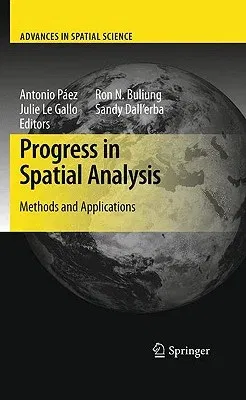Progress in Spatial Analysis: Methods and Applications (2010)Hardcover - 2010, 19 November 2009

Qty
1
Turbo
Ships in 2 - 3 days
In Stock
Free Delivery
Cash on Delivery
15 Days
Free Returns
Secure Checkout

Part of Series
Advances in Spatial Science
Part of Series
Advances in Spatial Science Advances in Spatial Science
Print Length
492 pages
Language
English
Publisher
Springer
Date Published
19 Nov 2009
ISBN-10
3642033245
ISBN-13
9783642033247
Description
Product Details
Book Edition:
2010
Book Format:
Hardcover
Country of Origin:
NL
Date Published:
19 November 2009
Dimensions:
23.39 x
15.6 x
2.87 cm
ISBN-10:
3642033245
ISBN-13:
9783642033247
Language:
English
Location:
Berlin, Heidelberg
Pages:
492
Publisher:
Weight:
902.65 gm